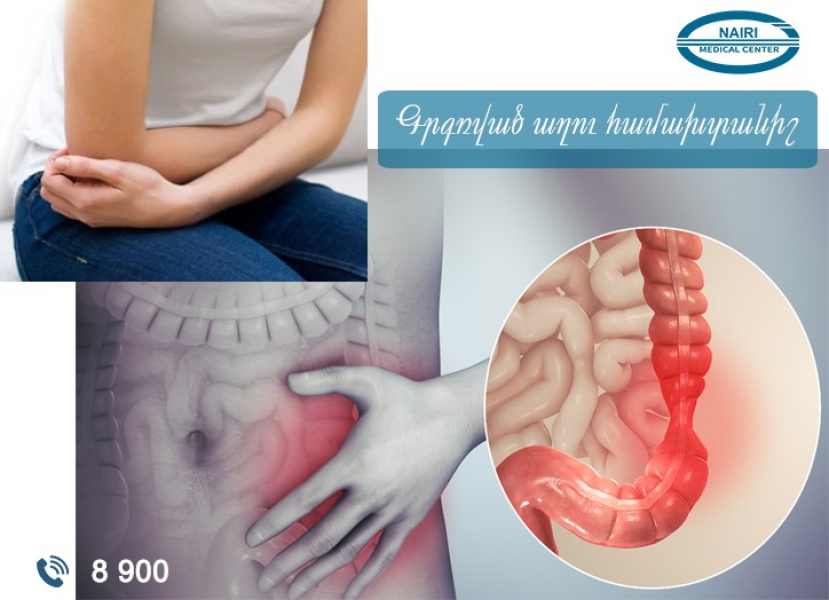Articles
Irritable bowel syndrome
10 September 2021 | Popular articles | Gastroenterology and Endoscopy
Irritated bowel syndrome is a group of symptoms, which is connected to disorders of the large intestine, including abdominal pain of various degrees, constipation, diarrhea or their alternation, meteorism and mucus in the stool.
Irritated bowel syndrome is diagnosed if the patient has at least 5 or more of the following symptoms:
- age (20-40 years old)
- bloating or a feeling of tightness in the abdomen
- Abdominal pain
- defecation act disorder
- Change of feces (solid, spherical, sheep feces)
- more than 6 months of symptoms
- predisposition to obesity
Absence of abnormalities during the physical examination, even though a slight increase of sensitivity of the anterior abdominal wall during palpation of the abdomen and contractions of the large intestinal segments, especially in the sigmoid region, are possible.
Relatively rare manifestations of irritable bowel syndrome are:
- presence of mucus in the stool
- nausea
- sexual disorders in women
- pain in the back, hips or chest
- Frequent urination
- depression.
Sometimes irritable bowel syndrome is manifested by constipation and diarrhea.
Treatment:
- Diet
- Drug treatment due to the type of functional disorders
- Myogenic antispasmodics are indicated in case of high muscle tone of the large intestine (colonic dyskinesia).
- Prokinetics are prescribed to regulate intestinal tone
- In case of constipation, it is recommended to start the treatment with wheat bran and in case of ineffectiveness, osmotic solvents.
- In case of excessive bacterial growth, dysbiosis, eubiotics and other preparations are used.
- Enzymes are used in case of insufficient excretory function,
- In order to regulate neuropsychological activity, in case of significant deviations from the latter, sedative treatment is used.
Irritated bowel syndrome is often seen in gallstone-diverticular diseases, mediastinum, esophageal hernia, colitis and other diseases. In case of prescribing treatment, concomitant diseases should be taken into account.
Sign up here for our newsletter








